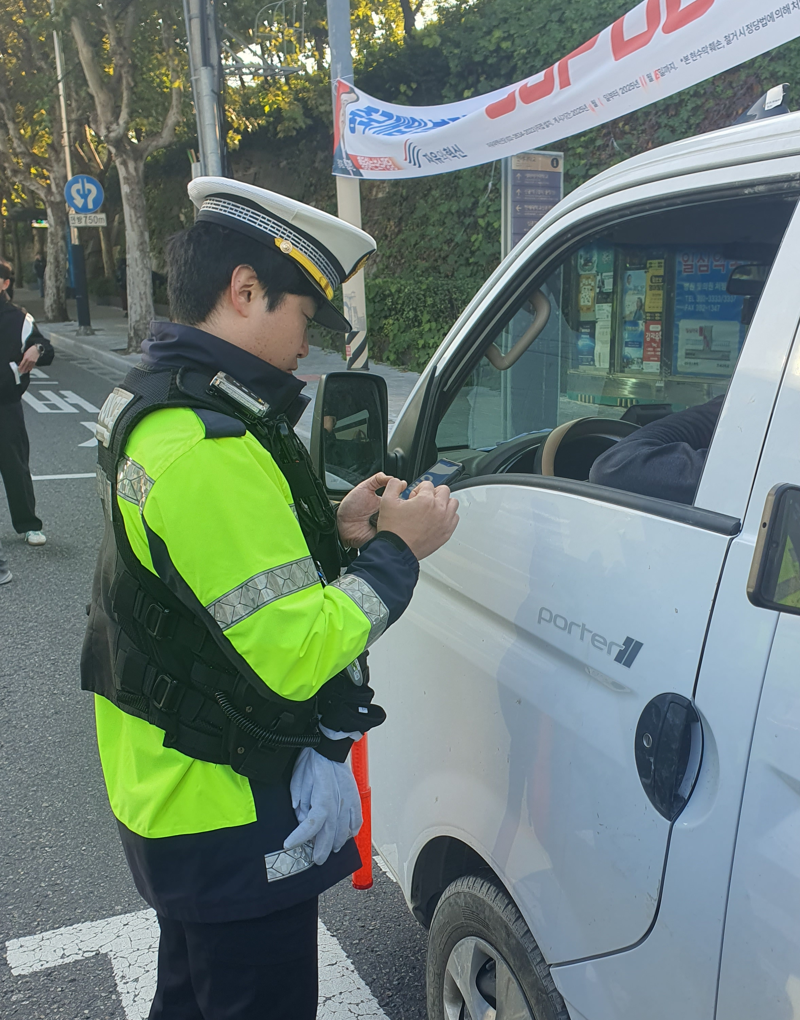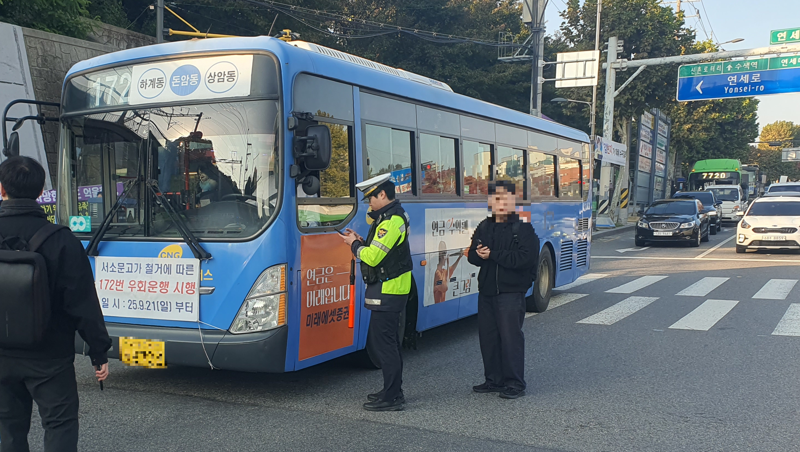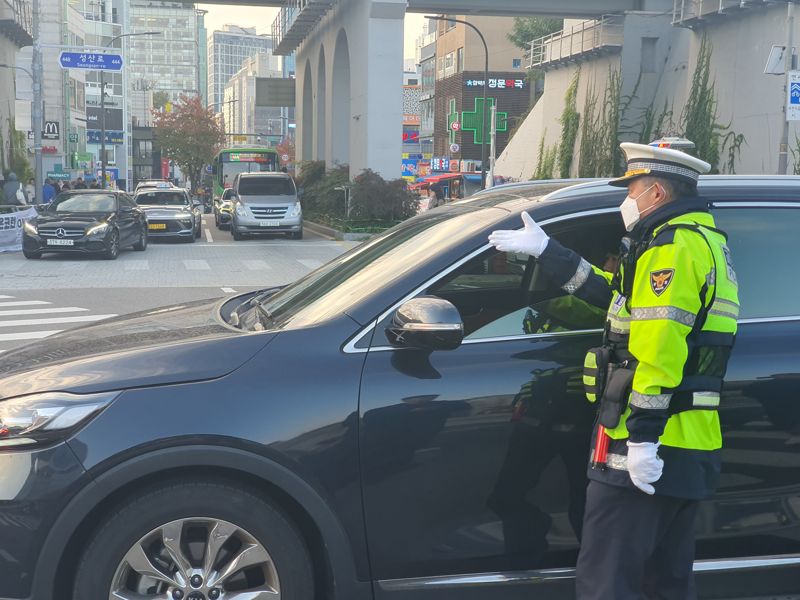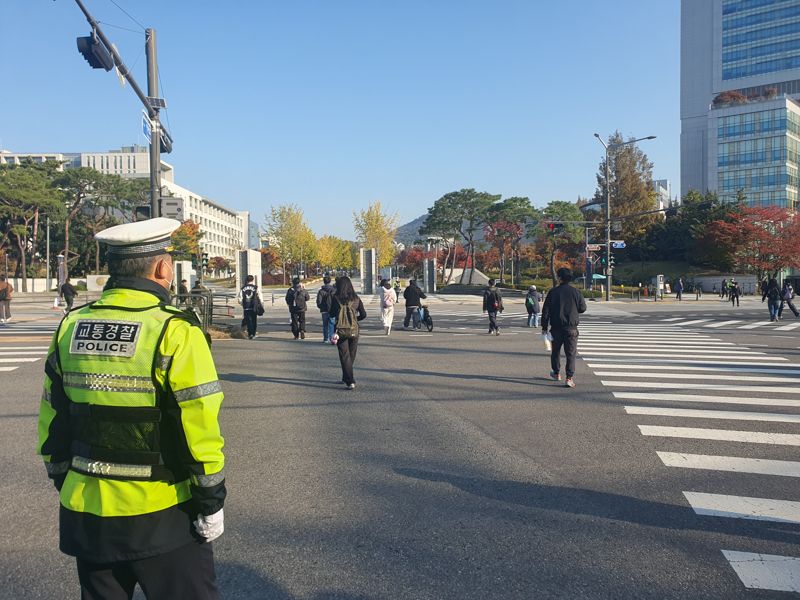[Report] Even with Police Presence, 'Tailgating' and 'Ignoring Signals' Persist... On the Scene with Joint Crackdown
- Input
- 2025-11-04 15:02:08
- Updated
- 2025-11-04 15:02:08

At 8 a.m. on the 4th, at the intersection in front of Yonsei University's main gate in Seodaemun District, Seoul, vehicles repeatedly stopped in the middle of the intersection as the signal changed, causing following buses to halt as well. A university student on their way to class said, "Buses often block the crosswalk, so even when the signal changes, we can't cross."
On this day, the Seoul Metropolitan Police Agency (SMPA) conducted the first phase of its citizen-centered 'Seoul Traffic Re-Design Project' by launching a 'swift traffic crackdown' across Seoul, including Jongno District, Gangnam District, and Seodaemun District. The crackdown targeted common violations that cause rush-hour congestion, such as tailgating and illegal lane changes.
From 7 a.m., officers from the SMPA Traffic Mobile Unit and Seodaemun Police Station's traffic division were stationed in front of Yonsei University. Police directed vehicles entering the intersection using hand signals and guided those forcing their way into congested sections to the shoulder. Officers explained the violations through car windows, and some drivers nodded in acknowledgment as they were cautioned.

On the opposite lane, a city bus tailgating into the intersection blocked the center. A police officer stood in front of the bus to check the driver's seat, while a long line of vehicles formed behind. Dozens of students and office workers waited at the crosswalk, watching the scene. Patrol cars and officers stood by on the roadside, and updates on the crackdown were relayed over the radio.
Seodaemun Police Station also deployed traffic officers to congested areas such as Yeonhui Interchange, Hong Eun Intersection, and Independence Gate Intersection. At the Yonsei University intersection, seven violations were cited and 15 warnings were issued. Across Seoul, a total of 252 violations were detected during rush hour that day (109 citations and 143 warnings). Of these, 94 were for tailgating and 132 for illegal lane changes.
Tailgating refers to entering an intersection following the car ahead even after the signal has turned red. When vehicles stop in the middle of an intersection, cars from other directions cannot move, leading to gridlock. It is considered a major cause of traffic congestion. Article 25, Paragraph 5 of the Road Traffic Act prohibits this behavior, imposing a fine of 40,000 won for passenger cars and 50,000 won for buses.

Starting today and continuing for two months, the SMPA will promote the Seoul Traffic Re-Design Project, which is based on citizen suggestions. Citizens can report inconvenient or dangerous traffic conditions via QR code or online, after which police and related agencies will inspect the site and implement improvements. The Seoul Metropolitan Government, the Autonomous Police Commission, and the Korea Road Traffic Authority (KoROAD) are also participating as partner organizations. This is the first major initiative of SMPA Commissioner Park Jeong-bo.
Choi Byung-ha, head of traffic safety at Seodaemun Police Station, said, "Repeated rush-hour congestion causes significant inconvenience to citizens. We ask everyone to refrain from tailgating and illegal lane changes, and to follow traffic laws to minimize inconvenience for those who comply and drive properly."

425_sama@fnnews.com Choi Seung-han Reporter